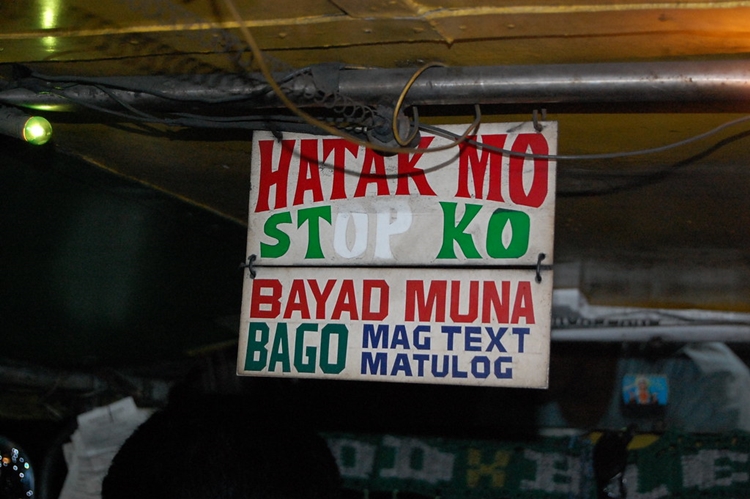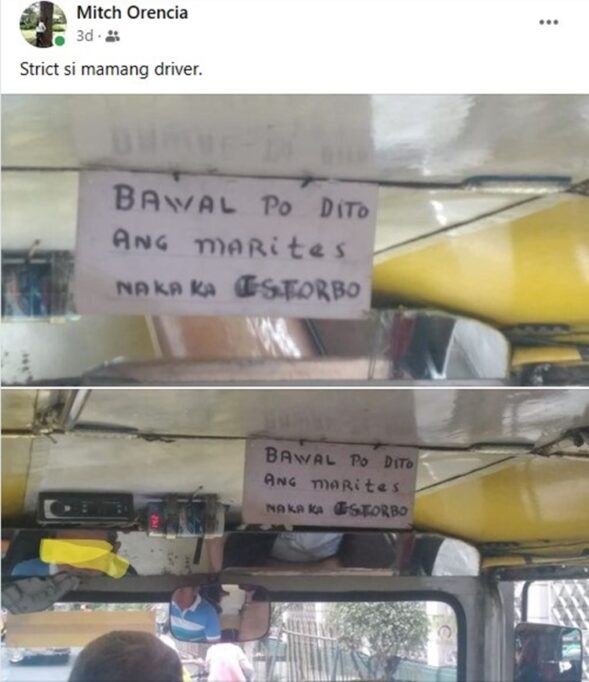Netizens capture the attention of a “bawal marites” signage inside the jeepney
BAWAL MARITES – A signage that prohibits “gossipers” from riding the jeepney has caught the attention of a commuter.
Most jeepneys in the Philippines are adorned with elaborate signage, which has become a cultural tradition deeply ingrained in the country’s transportation landscape. These signs serve as more than just practical messages; they are vibrant expressions of Filipino creativity, humor, and identity.
Known locally as “tugmang de gulong” or “puns on wheels,” the signage often features witty and humorous messages, reflecting the Filipino penchant for wordplay and entertainment. Beyond entertainment, the signage also plays a practical role, conveying important messages such as fare collection policies, safety reminders, and requests for passengers to adhere to certain behaviors.

Moreover, each jeepney’s signage contributes to its unique identity, with drivers personalizing their vehicles with signs that reflect their personality, beliefs, or sense of humor. This tradition of decorating jeepneys with colorful and eye-catching signage is deeply rooted in Philippine culture and has been passed down for generations, adding to the charm and character of Philippine streets while showcasing the creativity and individuality of its people.
Recently, a certain Mitch Orencia took to the social networking site, Facebook, where she posted a sign she snapped while riding a jeepney. Her post was accompanied by the caption: “Strict si mamang driver.”

The sign clearly stated that “gossipers” were not allowed inside the jeep, indicating that engaging in gossip or chit-chat could disrupt the driver’s concentration. “BAWAL PO DITO ANG MARITES NAKAKA ISTORBO,” the sign read.
In an exclusive interview with Balita, Mitch, a professor at a state university, shared her amusement upon seeing the sign, prompting her to take a photo of it. “Nakita ko lang yan sa jeep. Natuwa ako,” she said.
Related Post: Kind-Hearted Jeepney Driver Gives “Libreng sakay para sa walang pamasahe”
